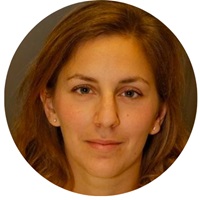5 Must-Know CV Insights for Hiring in France

In France, candidates follow a unique set of unwritten rules when it comes to structuring their CVs. And for international hiring teams unfamiliar with these norms, critical information can be misread — or missed entirely. This guide breaks down the 5 key sections of a French CV that recruiters must understand to attract and select the best candidates.
2. Work Experience: Clear, Precise, and Relevant
3. Education: Understanding French Academic Culture
4. Skills and Soft Skills: What French Employers Expect
5. Extra Details That Make a Difference

In France, a CV always starts with personal contact details – and they are non-negotiable. Missing or poorly presented contact information is a deal-breaker for 25% of French recruiters, according to a 2025 study by RegionsJob. Here’s what matters:
- First and last name
- Phone number with country code (e.g., +33 for France)
- Professional email address (e.g., firstname.lastname@email.com)
- City of residence (even if not mandatory, it's expected)
A generic email like “coolguy75@hotmail.fr” could immediately disqualify a candidate. Recruiters in international companies like Dassault Systèmes or Capgemini expect professionalism even in minor details.
Additionally, LinkedIn profiles are essential. According to LinkedIn France, over 70% of recruiters review candidates’ LinkedIn pages before contacting them. For technical roles, links to a GitHub or Behance portfolio are highly recommended.
Bottom line: sloppy or missing contact info can sabotage a strong profile before it’s even read.
" In France, recruiters expect a reverse-chronological structure under “Expériences professionnelles,” with measurable results, not vague job descriptions."
Lea Orellana-Negrin
Recruiter
Eurojob-Consulting

A statement like “Handled social media” falls flat. Instead, write: “Managed Instagram and LinkedIn strategy, increasing follower engagement by 40% in 6 months.”
A study by Apec reveals that 84% of French recruiters prioritize experience that directly matches the job description. Important details include:
- Timeframe (e.g., MM/YYYY – MM/YYYY)
- Job title and company
- Location
- Type of contract (CDI, CDD, Stage, Alternance)
- Responsibilities with quantifiable impact
Example:
09/2023 – 06/2025
Digital Project Manager – Publicis Groupe, Paris – CDI
Led 3 projects with cross-functional teams; managed €500,000 annual budget.
Understanding the French contract types is crucial. A CDI (permanent contract) carries more weight than an Alternance (work-study), though both have their place.
In a market where France Travail reports over 2.7 million job openings annually, a result-driven and structured CV helps candidates rise above the crowd.
French CVs feature an “Education” section that is closely scrutinized, especially by employers looking for early-career talent or future managers. According to L’Étudiant, 91% of recruiters consider academic background a key filtering criterion.
A typical education entry should include:
- Degree name (e.g., Master, Licence)
- Institution (e.g., NEOMA Business School)
- Graduation year
- Major or specialization
- Final grade if positive (e.g., 15/20)
Example:
2025 – 2026
Master in Marketing – NEOMA Business School, Reims
GPA: 15/20 – Specialization in digital strategy
Prestige matters. Degrees from French “Grandes Écoles” like HEC Paris, ESSEC, or CentraleSupélec are highly respected. Graduates from these schools earn €40,000–50,000 on average in their first job, according to L’Étudiant.
Don’t overlook international programs (e.g., Erasmus semesters at University of Mannheim or joint degrees with TUM). Global exposure is a major asset for employers like TotalEnergies and Schneider Electric.

The “Skills” section (“Compétences”) in a French CV is a key evaluation point. Recruiters want both hard skills (technical tools, languages, software) and soft skills (communication, leadership, creativity).
Based on Monster France, 67% of recruiters reject CVs that lack clear skills. Effective entries include:
- Languages: “French (native), English (C1), German (B2)”
- Tools: Excel (advanced), HubSpot, Adobe Suite
- Methodologies: Agile, Scrum, UX Design
More importantly, soft skills must be supported by concrete examples. Avoid empty labels like “team player.” Instead, write: “Managed a cross-functional team of 10 during a CRM rollout.”
French employers value qualities such as autonomy (autonomie), rigor (rigueur), initiative (esprit d’initiative), and professional curiosity (curiosité professionnelle). A Cadremploi study shows that 78% of recruiters consider soft skills essential.
With the rise of applicant tracking systems (ATS) via platforms like Welcome to the Jungle, precise keywords in this section also help candidates avoid being filtered out automatically.
The final section often overlooked in other cultures is taken seriously in France: “Centres d’intérêt” or “Interests”. According to Cadremploi, 74% of French recruiters say this section influences final hiring decisions when candidates are evenly matched.
Generic entries like “music, travel, cinema” are unimpressive. Instead, focus on engagement and specificity:
Interests:
Active volunteer at Les Restos du Cœur – weekly food distribution for 150 families
Paris Half-Marathon finisher 2025 – Demonstrating endurance and personal goal-setting
Improv theatre performer since 2023 – Enhancing creativity and public speaking
These details reveal personality, commitment, and initiative, especially valued in companies like Danone or Decathlon. International experience, Work & Travel, side projects (apps, blogs, podcasts), and cultural memberships (e.g., OFAJ/DFJW) are also key differentiators.
In short: In France, the “Interests” section is not optional – it’s a smart strategy to stand out.
For more great tips:
- Recruitment in France and Germany: 7 best practices to avoid losing candidates along the way
- Recruiting on social media in France and Germany: Top 5 mistakes
- How to Attract and Retain Talent in France – 5 Key Factors

Jérôme Lecot




